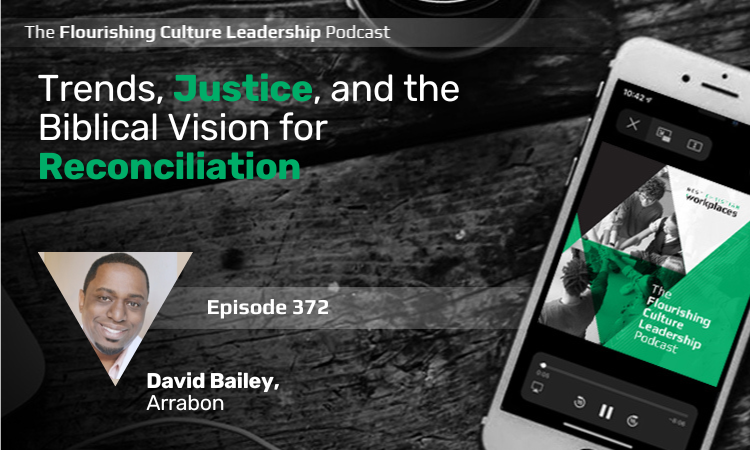370: 7 Workplace Trends for 2024
As Christian leaders, the burning question on your minds might be, "What trends can we expect this year?" Join us in this annual episode as we delve...
2 min read
 Best Christian Workplaces
:
January, 15 2024
Best Christian Workplaces
:
January, 15 2024

David Bailey, founder of Arrabon, explores the biblical perspective on racial reconciliation and offers practical insights for fostering long-term healing in communities and workplaces.
Listen in Apple Podcasts | Listen in Spotify | Listen in Google Podcasts
In this episode:
Biblical Basis of Reconciliation
Arrabon’s Approach to Reconciliation
Practical Application: Consulting and Stories
Characteristics of a Reconciling Community
Read a complete, word-for-word transcript of the episode
Follow our Host, Al Lopus, on LinkedIn & Twitter.
Email our host at al@workplaces.org
Arrabon has launched its latest small group resource. A People, a Place, and a Just Society is a 4-week Bible study that focuses on God's heart for justice and reconciliation through the whole narrative of Scripture.
.png)
As Christian leaders, the burning question on your minds might be, "What trends can we expect this year?" Join us in this annual episode as we delve...

Join us as experienced Best Christian Workplaces consultants share stories of Christian leaders seeking and acting on feedback, setting the standard...